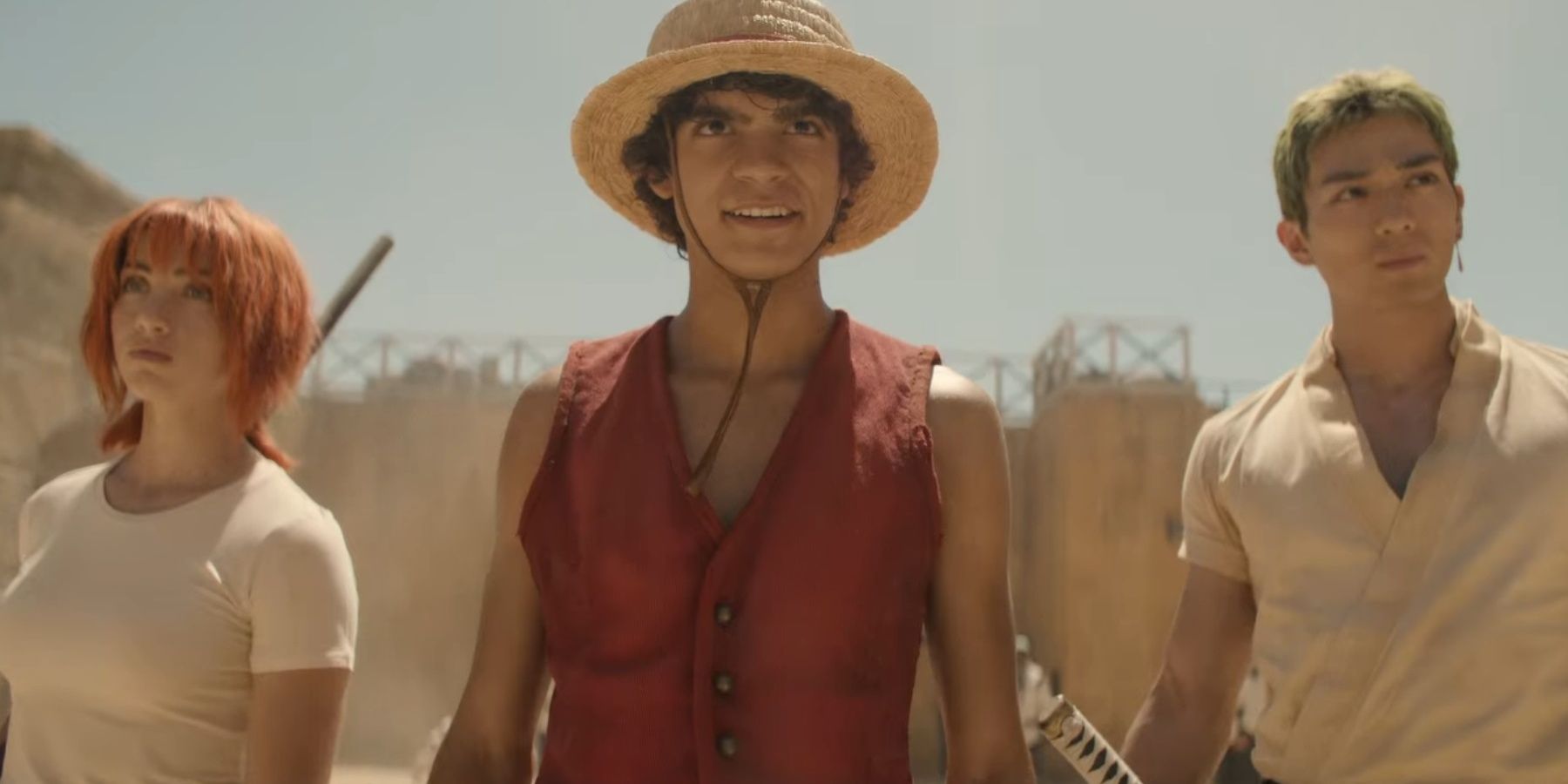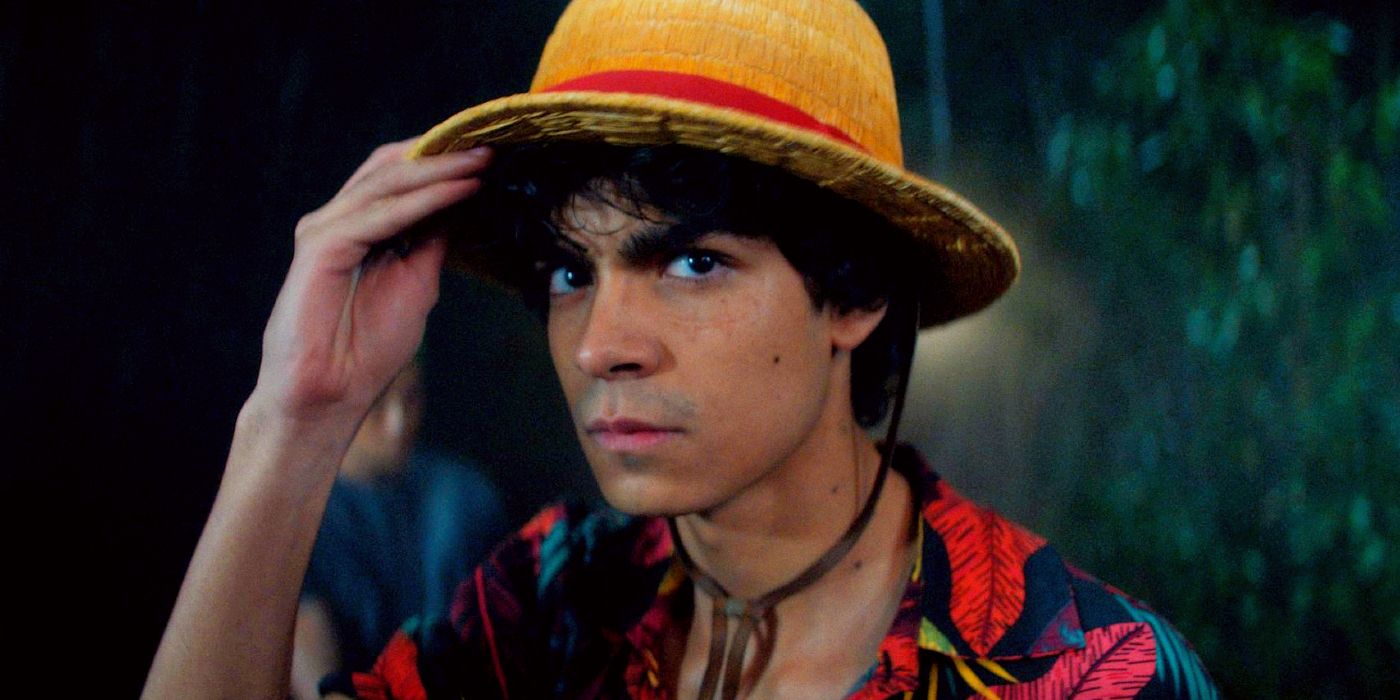The One Piece live-action series has sent shockwaves around the internet, with fans declaring that the series has finally broken the live-action anime curse, with many long-time One Piece fans praising the show and begging for a second season. This has led some to argue that the One Piece live-action show should be the model all other live-action anime adaptations follow. However, this is a reductive view that only sets future shows up for failure.
The One Piece live-action did something that many anime fans thought impossible: taking a popular, long-running shonen series and transforming it into a fun live-action product. But thanks to a combination of excellent casting, input from the original creator, well-done pacing, stunning effects, and a gripping storyline, the show won people over. Pulling a whole new audience into the world of One Piece while also pleasing long-time fans.
One Piece Was Good But Not Perfect

However, despite the excellent effects, the live-action One Piece's CGI is an interesting point of contention and shows why the series isn't a perfect model for other shows. While the CGI is never outright terrible, it does leave a little to be desired in some places, with some of Luffy's stretching moves looking a little off, especially on repeat viewings. But, these moments never take viewers out of the story because the show maintains a consistent aesthetic. The world of One Piece is bright, over the top, and cartoony, meaning that moments of less-than-perfect CGI don't stick out as badly; it doesn't seem out of place in a world where everything embraces its weirdness. Plus, any strangeness in Luffy's stretching animation doesn't seem that odd, as it suits his silly and playful nature, and viewers can buy into Luffy doing something a bit weird just because he finds it funny. However, this won't apply to other shows, especially ones that require heavy CGI but lack the over-the-top aesthetic. As in these shows, the issues with the CGI will be more noticeable and reduce audience immersion, degrading the product.
Also, the One Piece live-action did a fantastic job fitting part of One Piece's famously long and meandering story into a tight eight episodes. While it obviously had to make some changes to do this, most of these were for the better and made the series into a cohesive story that could be enjoyed on its own merits, even by viewers who had never picked up the manga or watched the anime. However, it should be noted that while the overall reaction to these changes has been positive, they're not universally loved, and many fans have complained about one or more of the alterations, showing that pleasing everyone is hard. But again, this isn't something other anime adaptations can bank on. One Piece was helped immensely by its pirate adventure storyline, as that genre and its central tropes are heavily embedded in global pop culture, making it much easier to quickly pull viewers in. Plus, the format of the manga's early arcs means it is easy to create a self-contained narrative with a start, middle, and end while leaving the story open for a future follow-up. But not all anime franchises have this inbuilt genre familiarity or easily separated structure. This means writers of other adaptations must work harder to balance telling the story with teaching the audience about the world, and the lack of an easy-to-separate format means that the writers must make more substantial changes to the source material to make the story work as a single American television season.
Plus, One Piece was lucky with its casting, finding the perfect people to represent each character, with Iñaki Godoy feeling like he was born to play the role of the wannabe pirate king. But this isn't something that can happen for every production, and even worse, it isn't something a studio can control and is more down to luck. Sometimes, there isn't a perfect actor for a role, or the perfect one isn't available. So the teams behind future adaptations should be careful they don't get sucked into a fool's errand trying to recreate One Piece's brilliant casting, as the right people for the job might not be as noticeable or may require the team to look past the obvious choices.
Studios should also tread carefully and avoid presuming that One Piece is a one-size-fits-all template for live-action adaptations of classic anime. One Piece works so well because the decisions made for it work well for One Piece's specific combination of tone, scenes, and storyline. However, other anime are not One Piece. In fact, One Piece has a very unique style, even within its own shonen niche. So, blindly copying One Piece when making other adaptations will not work and will lead to series that, at best, fail to feel like their source material or, at worst, don't work at all. Hollywood is the perfect example of this. Whenever a film does unexpectedly well, other studios try to make their own version. But, these knock-offs rarely work as trying to copy another product without tweaking it for the specific script, and staff working on the new project leads to a hollow experience that fails to live up to the original.
One Piece's Unique Situation

Plus, the creators of the live-action One Piece were in a rather unique position when working on the show as One Piece is still going, actively releasing new manga chapters. One Piece was also created and written by one person, Eiichiro Oda, and he was willing to be directly involved with the project, spending a lot of time making sure everything was just right. Also, if the things the cast and crew said are true, then it is clear that Oda and the rest of the team got along well, leading to a creative environment where everyone could work together to deliver the best project possible. One where everyone got at least some of what they wanted. This leads to a much smoother creative process, but this can't be done for every anime adaptation. Often, franchises are created by a team, and over time, members may drift apart or fall out and thus refuse to work together. Even if the creators are still active, many may not want to spend time and effort working on an adaption made primarily for international audiences, especially if they've since moved on to other stories. And even if they do opt to do it, there is no guarantee that it will be a smooth experience or that everyone will get on. It is just as likely that the original creator will struggle to work well with the live-action team, or they won't agree on important details of the project, leading to a rocky and confused production. So, presuming that a live-action adaptation can always copy One Piece's production pipeline is folly, as it is a rare example of things lining up well.
However, there are some things all future live-action adaptations should copy from One Piece. A big one is the length, as One Piece's eight-episode season is the perfect amount of time to introduce the characters and tell a complete arc from start to finish. Previously, many live-action anime adaptations have been movies, meaning that the writers had to try and fit the story into 90 minutes. This was often a near-impossible task, as an average anime season contains twelve to thirteen 30-minute episodes. Meaning that the adaptation's writers had to tell the same story but with 270 minutes less time, forcing massive changes and rushed pacing. While changes still had to be made to One Piece, the miniseries format meant that everything had time to breathe, leading to a perfectly paced show that fleshed out everything it needed to.
The other thing that should be carried forward is the passion everyone involved had for the original source material. A big issue with older live-action adaptations is that the people involved clearly didn't understand the original material or believed themselves above it. This led to adaptations that failed to capture what made the originals so beloved, often stripping away their core themes and ideas, leaving only a shallow retread of the original's visuals wrapped around a different story. This would lead to the worst of both situations, where the adaptation would upset long-time fans of the series, and those who were not fans wouldn't bother to watch it, leading to live-action adaptations getting a terrible reputation in both the industry and the anime fandom.
The One Piece live-action series did a great job adapting the beloved manga and anime series. While other shows can learn a lot from it, especially with how it worked closely with the original creator and clearly respected the original work, it shouldn't be treated as a mathematical model or instruction manual for how to make a live-action anime. Every show is different, and like with all art, there is no simple flow chart that will guarantee a great end result. The history of television is full of sure bets that flopped and guaranteed failures that somehow turned the tide and became beloved. So, the best way forward is to treat One Piece as an example and take from it what works, but only if it suits the project being worked on.

